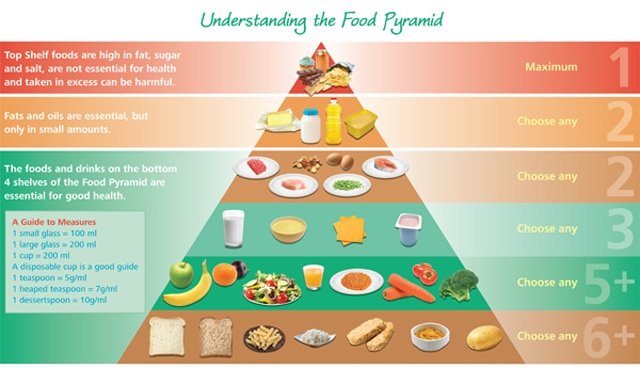Nutrition Tips

There are plenty of things we can do to eat healthier, we don’t need a strict diet or to deprive ourselves of foods we love. We need to eat smart allowing us to feel good and look good. Eating adequate vegetables (carrots, broccoli, spinach, cabbage etc) fruits (oranges, apples, berries etc) protein (fish, chicken, meat, nuts) and wholegrains (brown rice, brown pasta, brown bread) is key to smart eating.
Water brings the gift of life don’t spare it!
Tips on Beating the Flu
Beat The Flu Essential Vitamins
The immune system can be weakened by all kinds of stressors, including diseases or chronic conditions, invading organisms, poor diet or nutrient absorption issues, side-effects of medications, general organ health, and ageing. It is a proven fact that there is a link between healthy eating and academic achievement in students. Therefore in order to help our brains and bodies function adequately we need to fuel it appropriately. Good nutrition is essential to a strong immune system, which may offer protection from seasonal illness such as the flu and other health problems. Help protect yourself against infection and boost your immunity by including these nutrients in your diet.
Vitamin D
Vitamin D has a role to play in protecting the lungs and respiratory system from infections by increasing the secretion of anti-microbial immune cells. From April to September we can make some vitamin D by exposing our face, arms and legs to UV rays. However, we can ensure we have enough of this vitamin by regularly including vitamin D rich foods, such as oily fish (salmon, tuna, sardines and mackerel), eggs and fortified foods (milk, yoghurts and cereals) in our meals.
Vitamins A, C and E Protective vitamins, minerals and other components found in fruit, vegetables, herbs and spices taken consistently help to keep our immune systems working properly. Aim to eat at least two pieces of fruit and three vegetables a day to get a complete complement of vitamins and minerals for immune health. In particular, mushrooms help in the production of white blood cells. Broccoli and other cruciferous vegetables such as cabbage, kale, Brussels sprouts and cauliflower are good sources of vitamins in general. Broccoli also contains glucosinolates, which help to stimulate the body’s immune system. Vitamin B2, also found in broccoli, is vital for growth and vision and a healthy immune system.
Omega 3
Omega 3 fats are also essential. They work by increasing the activity of phagocytes, the white blood cells that destroy bacteria. These fats also help strengthen cell membranes, thereby speeding up healing and strengthening resistance to infection in the body. Eating a minimum of one portion of omega-3 rich oily fish (salmon, mackerel, tuna) each week is good for heart, joint and immune function. Maintaining a healthy weight can help your immune health too.
Carrying excessive weight around the middle has been associated with compromised immune function, chronic inflammation and an increased risk of infection.
Protein Protein is the building blocks for the body’s defense mechanism. Eat a variety of protein foods including seafood, lean meat, poultry, eggs, beans and peas, soy products and unsalted nuts and seeds are best sources of protein.
Other nutrients such as Zinc, Iron are also very important in our diet and can be obtained from beans, nuts, whole grain products and meat.
Tips on Beating the Winter Bugs
Beat The Winter Bugs With These Tips
- Follow a healthy diet using the essential vitamins needed for boosting immunity and general wellbeing. (can be found on “Beat the Flu” document under Nutrition on Student Health page)
- Eat foods in season
- Your food plate should follow a rainbow effect with plenty of colourful fruits and vegetables.
- Spice up your life, cook with spices such as chilli, turmeric etc. to fool proof your immunity.
- Adequate sleep is vital to maintaining strong healthy body.
- Alcohol should only be consumed in moderation not binging.
- Avoid smoking
- Get active, whether you’re a fitness fanatic or prefer a sedentary lifestyle a brisk 20 minute walk is adequate for boosting endorphin levels to help fight infection, improve mental health and sleep patterns.
- Reduce unnecessary stress in your lifestyle.
- Good hygiene, regular hand washing.
Sexual Health
Just as with other aspects of your health, your sexual health is very important.
College years may be a time of transition and change, and for some this means becoming sexually active with a partner for the first time, or a change in sexual partner(s). It may also be a time of self-discovery and uncertainty about your sexual orientation.
If you are concerned about any aspect of your sexual health the Student Health Department can help.
Sexually Transmitted Infections Support
The Health Unit Department offers screening for Chlamydia and Gonorrhoea, which can be tested on a single sample of urine in a male, or on a self-administered swab taken by females. The screening service is intended for those who do not have any symptoms.
If you have symptoms that you think may be caused by an STI, it is recommended that you be examined physically as wells as having blood, urine and swab tests, which can also be arranged where necessary. You should also consider attending for regular STI screening in the Health Unit if you have being sexually active.
For further sexual health advice you can visit: Homepage – sexualwellbeing.ie
Drugs & Alcohol Support and Information
If you find yourself struggling with addiction, please reach out to us at (061) 293106 or nurses.midwest@tus.ie, for mental health supports you can also email counselling.midwest@tus.ie.
For more information and advice you can visit the following sites:
Drugs.ie
Askaboutalcohol.ie
Mwrdtf.ie
Spunout.ie
Hepatitis B: Adult Vaccines
Hepatitis B is a viral disease that attacks the liver and may cause jaundice (yellow skin and eyes). In most people the virus clears up within 6 months and they become immune. But some people (about one in ten of those who get hepatitis B as an adult) remain infectious and may go on to develop cirrhosis or cancer of the liver over a period of years. Follow up is important to detect early changes and treat when necessary.
Hepatitis B is preventable by using a safe and effective vaccine. To find out more please visit Hepatitis B – HSE.ie.
Travel Vaccines
The Tropical Medical Bureau (TMB) is the leading travel medicine clinic group in Ireland, specialists in providing the best information and medical care available for the international traveller. Each year TMB sees an average of 25,000 patients, ranging from the private holiday maker to employees of commercial companies, and overseas volunteers to NGO’s and Government departments. To find out more please visit TMB – Vaccinations & Travel Health Clinics in Ireland.




